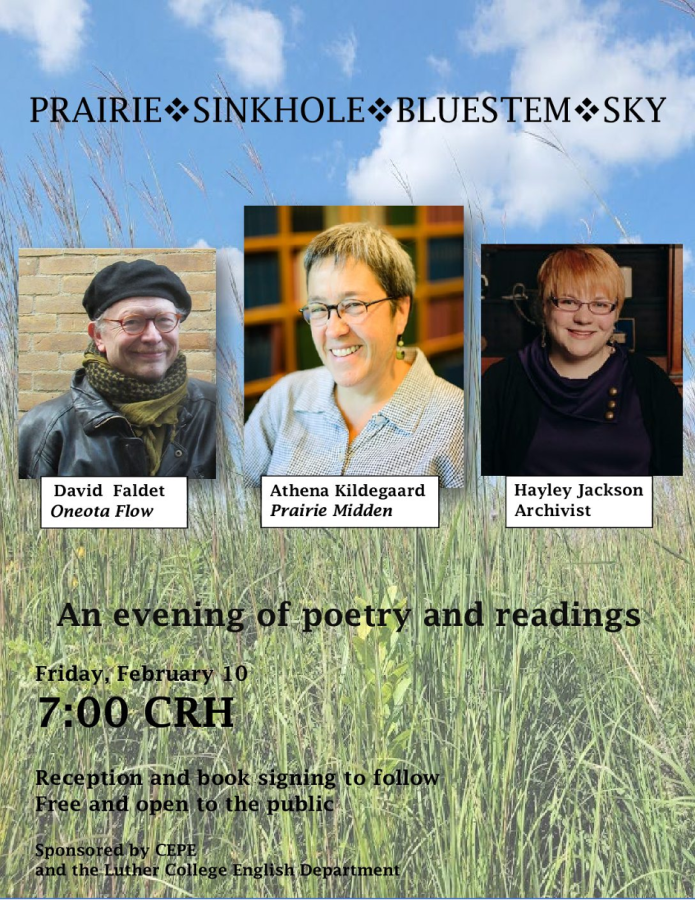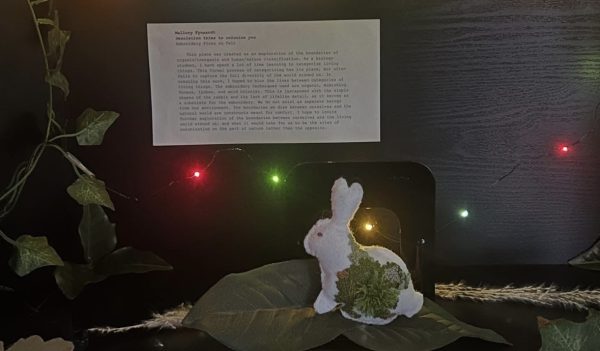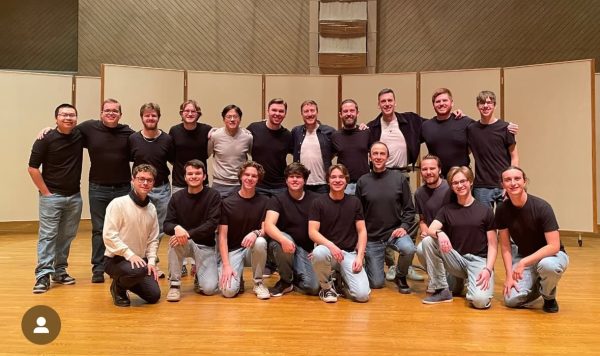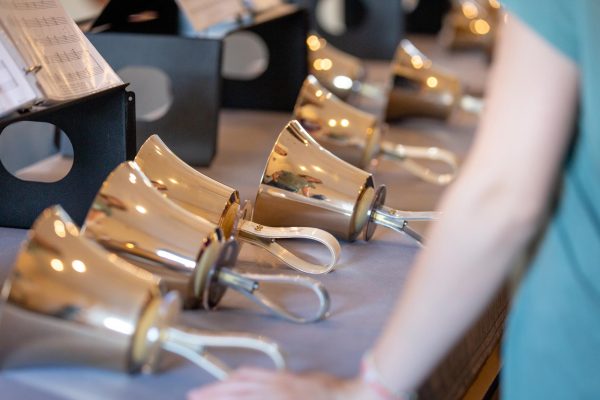“Prairie Sinkhole Bluestem Sky” celebrates local ecosystem
Two writers and an archivist were brought together in the Center for Faith and Life (CFL) Recital Hall on February 10 for “Prairie Sinkhole Bluestem Sky”, an evening of storytelling about the prairies and valleys that surround us.
The event, which was co-hosted by the Luther College English Department and the Center for Ethics and Public Engagement (CEPE), featured three speakers: Professor Emeritus of English David Faldet (‘79); University of Minnesota, Morris professor Athena Kildegaard; and Luther College archivist Hayley Jackson. Faldet and Kildegaard read excerpts from their books while Jackson presented stories from the Luther archives about the prairie and the people who lived there.
Faldet read four excerpts from his book “Oneota Flow”, which features various stories about the Upper Iowa River and its people. A chapter named “Roots and Fire” details Faldet’s visit to Hayden Prairie while a section was being burned by the Iowa Department of Natural Resources. Faldet described the symbolism of fire in the chapter, as well as explained how the surrounding region combines two different ecosystems: the prairie and forest.
“This chapter is about how fire is a form of cultivation,” Faldet said. “The chapter really looks at the way that we are here in an ecotone, where two different biological systems meet. The prairie is to the west of us, and to the north and east are the forests.”
Faldet was followed by Jackson, who focused on how preservation unites the prairie and the Luther archives. Jackson read a chapter from “Prairie Fires: The American Dreams of Laura Ingalls Wilder” by Caroline Fraser, as well as discussing the diaries and letters of Elisabeth Koren and Linka Preus. Jackson concluded her thoughts by inviting student attendees from Professor of English Amy Weldon’s creative writing class to talk about their own work in the Luther archives. Yearly, students of Weldon’s get the opportunity to observe various artifacts for creative inspiration.
“It’s one of my favorite things we do here,” Jackson said. “These collections are a part of the community [and] came from people who were here. It helps [students] build deeper connections to the college.”
The last speaker of the night was Athena Kildegaard. Kildegaard read excerpts from her newest book, “Prairie Midden”. In the book, Kildegaard has many “Dear Prairie Daughters” poems, which imagine daughters of settler families throughout U.S. history. Kildegaard explained that these were her attempts to “talk” to these young women across various generations and years. Kildegaard said that while she initially wrote these poems with the goal of finding writing by settler women about the prairie, she instead found writing about the highs and lows of days, chores, and weather.
“I found the lives of these women deeply interesting, and so that’s when I began writing the “Prairie Daughter” poems,” Kildegaard said. “Poems in the voices of these young women, about their lives. Those poems are at the heart of the book, really.”
Professor of English Lisa Kildegaard (coincidentally the sister-in-law of Athena Kildegaard) was the host of the event. She said the goal of organizing the evening was to pay attention to the surrounding ecosystem, and bring in different perspectives. She also said she was personally inspired by the “imaginative approaches” the three speakers took to the natural environment.
“The historical analysis [and] the poetic descriptions all help me appreciate the time and place where I live,” Kildegaard said.
The next CEPE event will be an upcoming public talk by author Gary Phillips. “The Intersection of Crime Fiction and Social Change”, a Black History Month Distinguished Lecture, will be held on Thursday, March 2. The talk is scheduled for 7:00 p.m. in the CFL Recital Hall.






